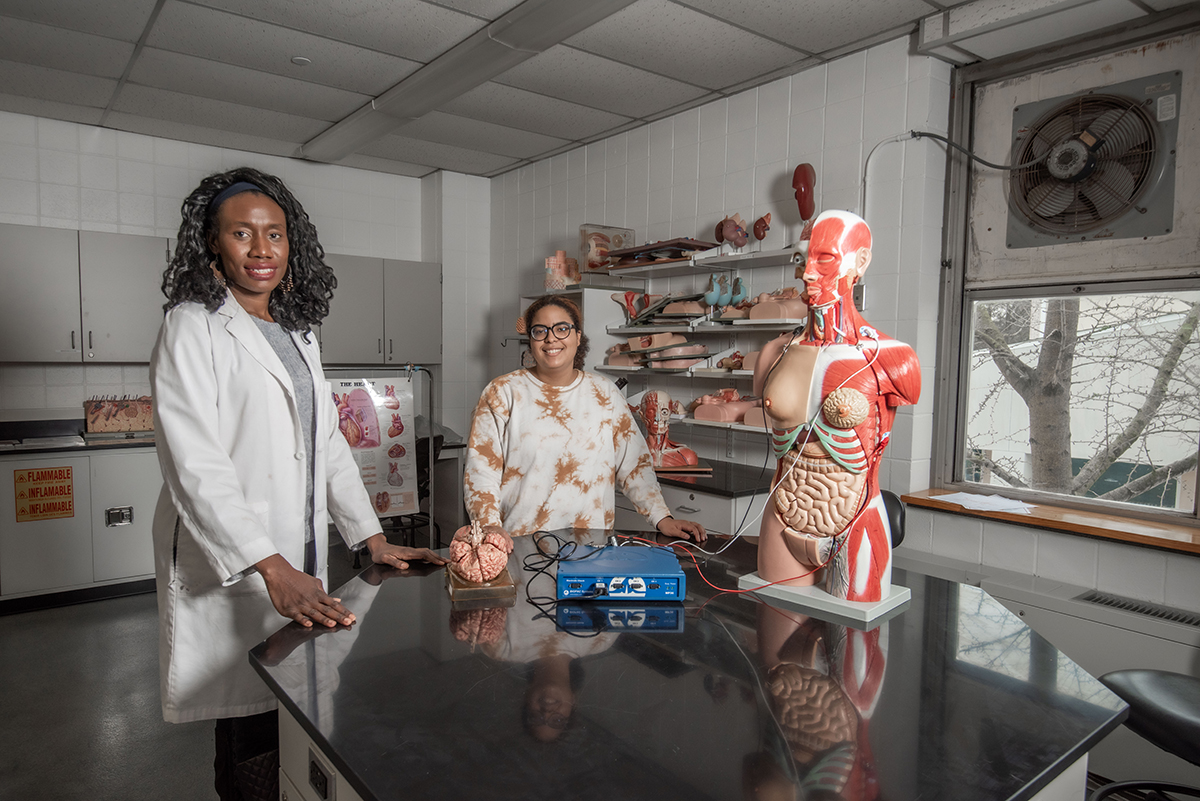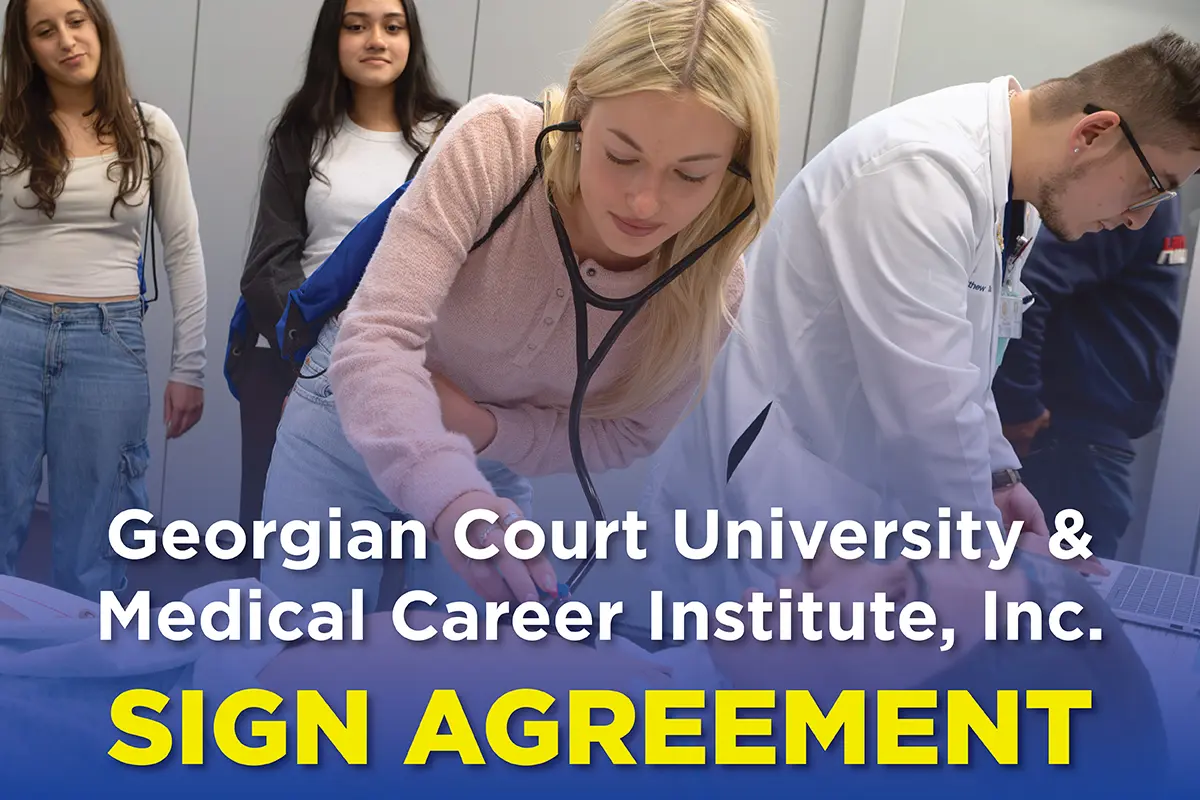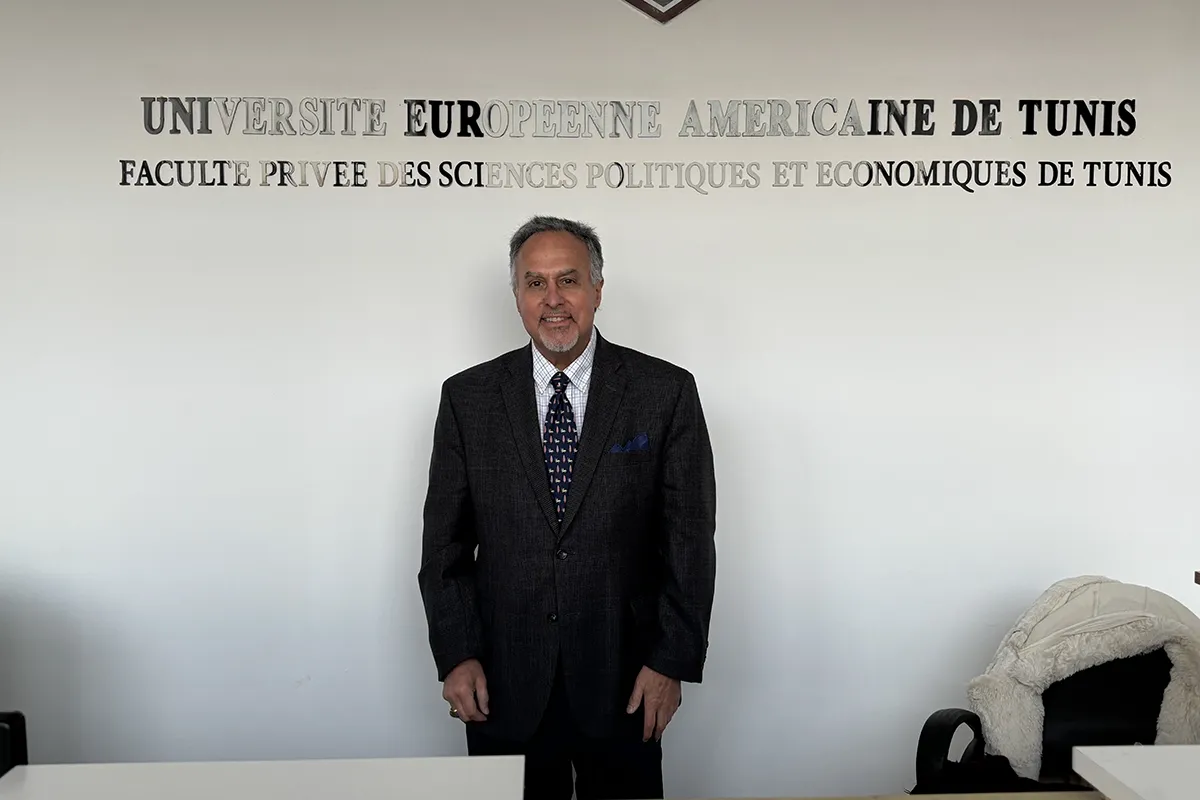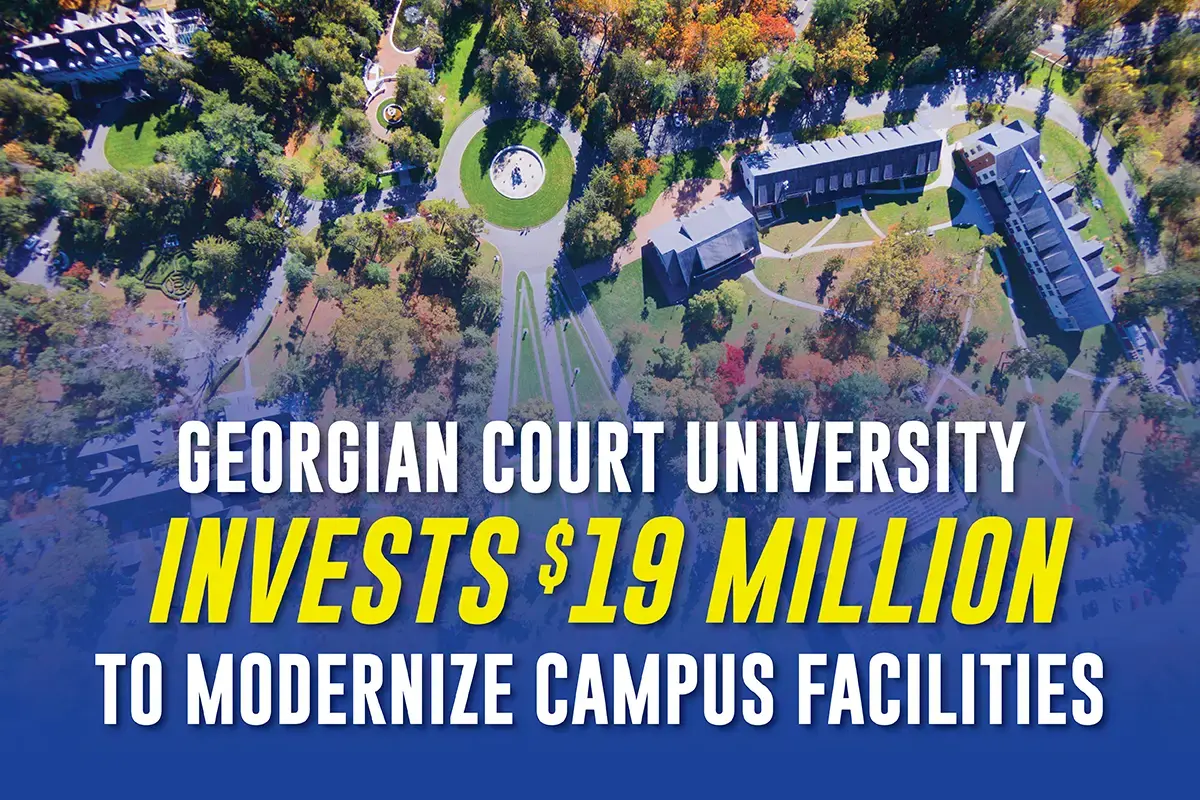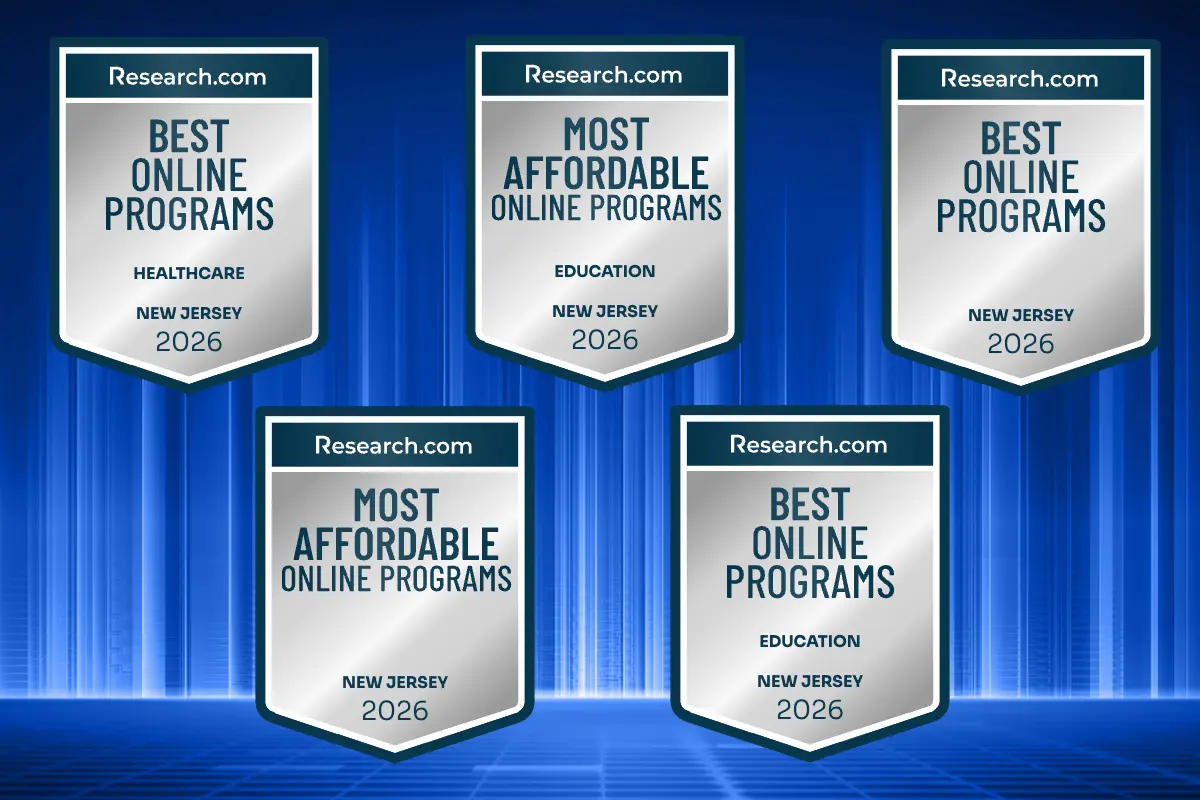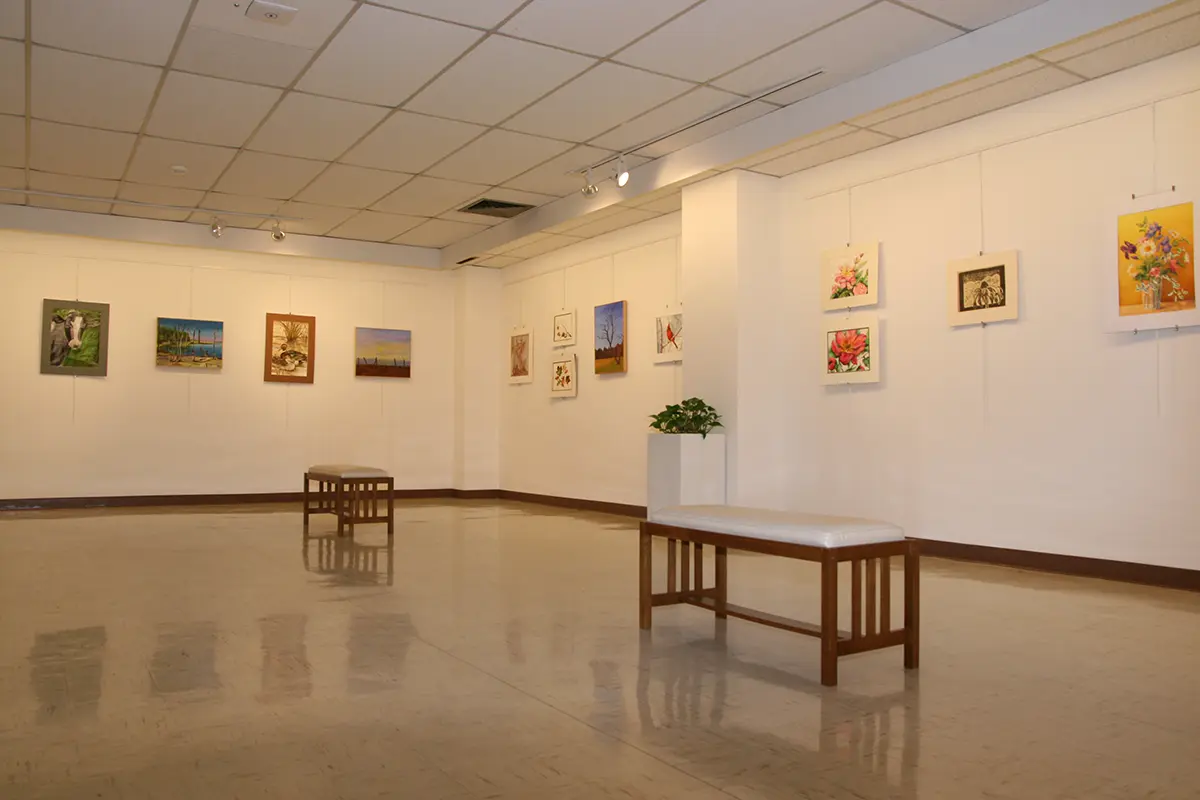Diana Gallego ’23 (right), a NASA Space Grant recipient, has been exploring the correlations between anxiety and heart rate with her mentor, Dr. Chinenye Anako (left).
Five Georgian Court University (GCU) undergraduates received NASA Space Grants this academic year—a record number for the school. Each received a $2,000 grant for a space-related research project, conducted together with faculty mentors. “Working on research projects takes students beyond the textbook experience, in this instance, against the fascinating backdrop of human exploration in space,” says Anne Tabor-Morris, Ph.D., professor of physics, coordinator of the GCU NASA Science Outreach, and New Jersey NASA Space Grant representative.
In this installment of our GCU Space Grant series, meet Diana Gallego, a biology major from North Brunswick, New Jersey.
Diana Gallego ’23, the first in her family to attend college, is making the most of her time as a Georgian Court University student. She’s active in campus life, will study in Greece next fall, and in what could be the most transformational experience of all, works alongside her faculty advisor on mental health-related research supported through a NASA Space Grant.
Faculty at smaller colleges like GCU really get to know the students they advise throughout the undergraduate years. Chinenye Anako, M.D., lecturer and coordinator of anatomy and physiology, was well aware of Diana’s interest in mental health as a biology major and psychology minor, and of her plans to attend graduate school and work as a counselor, although medical school is another possibility.
“I thought research would be a good opportunity for Diana and suggested she look into what the university had to offer; then I remembered a project I started and set aside,” said Dr. Anako. “When Dr. Tabor-Morris announced applications for the NASA Space Grants were open, everything clicked together.”
Diana and Dr. Anako’s research, titled “The Impact of Mental Health on the Human Autonomic Nervous System,” is exploring the correlations between anxiety and heart rate, one of the body’s functions that occurs automatically. “One part of our research I really like is that it involves volunteers,” said Diana. “We record their body measurements and have them complete the Hamilton Anxiety Rating Scale, a common assessment of anxiety in clinical and research settings. We also record their EKG [electrocardiogram], which indicates the heart’s rate and strength.” They aim to include at least 60 subjects, with a particular interest in including athletes in the study.
“We know that exercise can have beneficial effects on stress levels and mental health. If changes to the autonomic nervous system related to stress are reduced in athletes or people who exercise regularly, it’s something worth looking into,” said Dr. Anako. “That information could apply to anyone’s workplace, or, in thinking about space, help us consider different ways for astronauts to exercise. It could also underscore the importance of identifying mental health strategies for astronauts and those working in the command center or in space research.”
A Holistic Research Experience
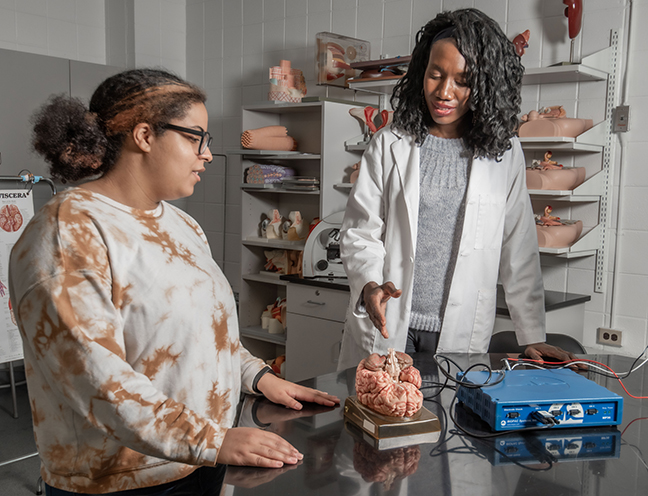
While most college students will be introduced to academic research at some level, Diana’s experience goes much deeper than the majority. She’s been through an Institutional Review Board presentation, analyzed relevant literature and written summaries, worked on budgets and timelines, and interviewed study subjects and taken their measurements. Still to come, she will analyze the data and ultimately, present her conclusions at an in-person poster presentation sponsored by the NASA New Jersey Space Grant Consortium at the end of April.
“It’s all been new to me, definitely a different experience than reading about someone else’s research,” said Diana. She’s enthusiastic about the upcoming data analysis (“We have some software for that I’m excited to use!”) and even stepping out of her comfort zone with the poster presentation. “I’m a little nervous, but it will give me an opportunity to sharpen my public speaking skills in a setting outside of Georgian Court.”
Dr. Anako has full belief in her mentee because she’s observed Diana’s research abilities—and her confidence—soar. “Diana has much more self-assurance now than when we began our research, and it’s been a joy to mentor her. She knows what’s involved with research because she has done it,” said Dr. Anako. “Teaching is the primary focus for Georgian Court faculty, and by teaching Diana how to be a researcher, I feel it’s a skill that she will apply in her future, whether she’s a counselor who conducts a study, has student counselors to train, or goes to medical school and engages in research.”
Starting her research during the summer, Diana would come home from her job and then turn to research activities. “I felt, sometimes, that my workday would not end, but my parents were very excited for me. They are so proud I am doing research,” said Diana. “They would tell me, ‘This is not just something for school. This research will follow you for the rest of your life—and they are right. It has been quite a journey, one that will continue.”
Other Student Profiles in the GCU Space Grant Series
Emily Humphries: “Comparing Algorithmic Efficiencies of MATLAB, Mathematica, and Maple”
Angelina Monaco: “The Effect of Isolation and Loss of Social Networks with Applications in Space Exploration”
Patrick Morris: “The Effect of Cognitive Demand on Exercise Capacity and Performance”
Victoria Vonfrolio: “Properties of Special Matrices in Mathematics”
NASA’s National Space Grant College and Fellowship Project is a national network of colleges and universities working to expand opportunities for Americans to understand and participate in NASA’s aeronautics and space projects by supporting and enhancing science and engineering education, research, and public outreach efforts. Georgian Court has been participating for approximately two decades.
Story contributed by freelance writer Sheila Noonan. Photos by Jim Connolly.

